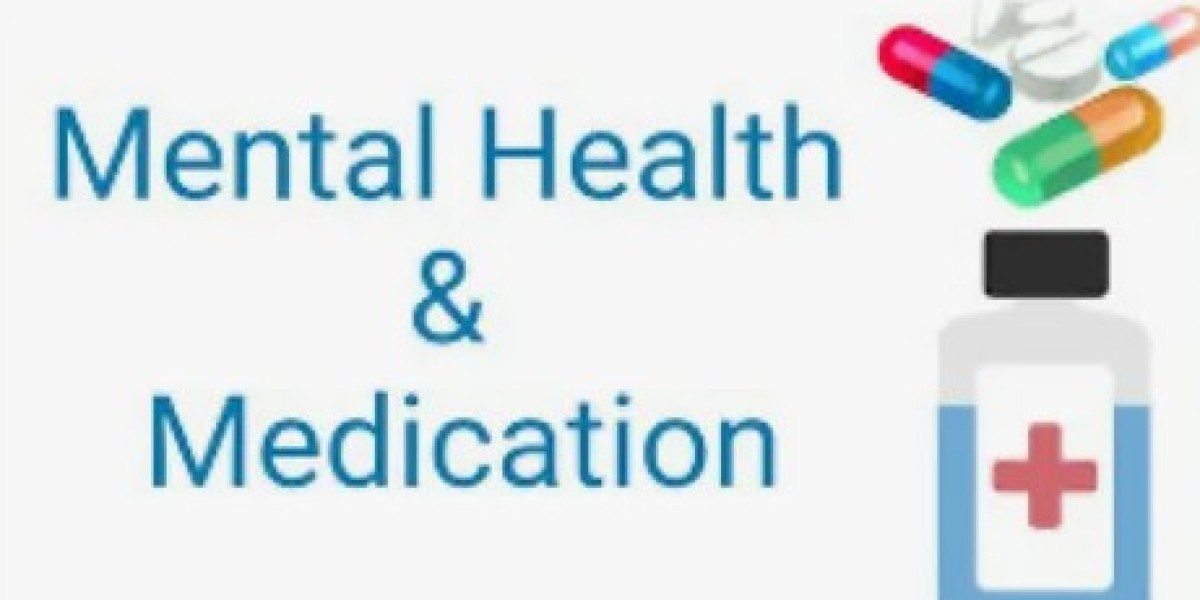Mental health is a critical aspect of overall well-being, yet millions of people worldwide face challenges such as anxiety, depression, bipolar disorder, and other psychiatric conditions. For many, medications for mental health play an essential role in managing symptoms, improving quality of life, and supporting other forms of therapy. Understanding the types of medications available, how they work, and their potential side effects is crucial for anyone considering or currently using these treatments.
What Are Medications for Mental Health?
Medications for mental health, often referred to as psychotropic medications, are drugs specifically designed to affect the brain’s chemistry to help manage psychiatric symptoms. These medications are not a cure for mental health disorders, but they can significantly reduce symptoms, making daily functioning and therapy more effective. They work by influencing neurotransmitters—chemicals in the brain that affect mood, behavior, and cognition.
Common Types of Mental Health Medications
Mental health medications are categorized based on the conditions they treat and their mechanism of action. Some of the most common types include:
1. Antidepressants
Antidepressants are widely used to treat depression, anxiety disorders, and sometimes other conditions like chronic pain. They work by increasing levels of neurotransmitters such as serotonin, norepinephrine, and dopamine in the brain.
- Selective Serotonin Reuptake Inhibitors (SSRIs): Common examples include fluoxetine (Prozac) and sertraline (Zoloft). SSRIs are often preferred due to their relatively mild side effects and safety profile.
- Serotonin-Norepinephrine Reuptake Inhibitors (SNRIs): Medications like venlafaxine (Effexor) target both serotonin and norepinephrine and are effective for depression and anxiety.
- Tricyclic Antidepressants (TCAs) and Monoamine Oxidase Inhibitors (MAOIs): Older classes of antidepressants, less commonly prescribed today due to their side effects and dietary restrictions.
2. Anti-Anxiety Medications
Anxiety disorders affect millions of people and can interfere with daily life. Medications for anxiety help manage symptoms such as excessive worry, panic attacks, and physical manifestations like rapid heartbeat.
- Benzodiazepines: Drugs like alprazolam (Xanax) and lorazepam (Ativan) provide fast relief but are typically prescribed for short-term use due to the risk of dependence.
- Buspirone: An anti-anxiety medication with a lower risk of dependence, suitable for long-term management.
- Beta-Blockers: Though primarily used for heart conditions, beta-blockers can reduce physical symptoms of anxiety, such as tremors and palpitations.
3. Mood Stabilizers
Mood stabilizers are primarily used to manage bipolar disorder, which involves alternating periods of depression and mania. These medications help regulate mood swings and prevent episodes.
- Lithium: One of the most commonly prescribed mood stabilizers, effective in reducing manic episodes and preventing relapse.
- Anticonvulsants: Medications like valproate (Depakote) and lamotrigine (Lamictal) are used for mood stabilization and seizure control.
- Atypical Antipsychotics: Drugs such as quetiapine (Seroquel) and olanzapine (Zyprexa) can also stabilize mood in bipolar disorder.
4. Antipsychotics
Antipsychotic medications are primarily used to manage symptoms of schizophrenia, schizoaffective disorder, and other severe mental health conditions. They help reduce hallucinations, delusions, and disorganized thinking.
- Typical Antipsychotics: Older drugs like haloperidol (Haldol) are effective but may have more significant side effects, including movement disorders.
- Atypical Antipsychotics: Newer medications such as risperidone (Risperdal) and aripiprazole (Abilify) generally have fewer side effects and are widely prescribed.
5. Stimulants and Non-Stimulants
For conditions like Attention-Deficit/Hyperactivity Disorder (ADHD), medications help improve focus, attention, and impulse control.
- Stimulants: Drugs like methylphenidate (Ritalin) and amphetamine-based medications (Adderall) are highly effective in managing ADHD symptoms.
- Non-Stimulants: Atomoxetine (Strattera) and guanfacine (Intuniv) offer alternatives for those who cannot tolerate stimulants.
How Medications Work
Medications for mental health work by targeting chemical messengers in the brain, called neurotransmitters. For example:
- Serotonin influences mood, sleep, and appetite.
- Dopamine affects motivation, pleasure, and movement.
- Norepinephrine regulates attention, energy, and stress response.
By balancing these chemicals, medications can alleviate symptoms such as persistent sadness, excessive worry, mood swings, or psychotic episodes. The choice of medication depends on the diagnosis, symptom severity, medical history, and individual response to treatment.
Potential Side Effects
While medications for mental health can be life-changing, they may also come with side effects. Common side effects include:
- Nausea, dizziness, or fatigue
- Weight gain or loss
- Sleep disturbances
- Sexual dysfunction
- Mood swings or irritability
It is important to communicate openly with a healthcare provider to monitor side effects and adjust medications as needed. Never stop taking prescribed medication abruptly, as this can worsen symptoms or cause withdrawal effects.
Combining Medications with Therapy
Medications for mental health are often most effective when combined with psychotherapy. Types of therapy include:
- Cognitive Behavioral Therapy (CBT): Focuses on changing negative thought patterns.
- Dialectical Behavior Therapy (DBT): Helps manage intense emotions and improve interpersonal relationships.
- Supportive Therapy: Offers emotional support and practical coping strategies.
This combination approach addresses both the biological and psychological aspects of mental health, leading to better long-term outcomes.
Finding the Right Medication
Choosing the right medication requires careful assessment by a qualified mental health professional, such as a psychiatrist, psychiatric nurse practitioner, or primary care provider. Factors considered include:
- Diagnosis and symptom severity
- Medical history and existing health conditions
- Potential drug interactions
- Personal and family response to previous medications
It may take time to find the most effective medication and dosage, as individual responses can vary significantly. Patience, open communication, and regular monitoring are key components of successful treatment.
The Importance of Adherence
Consistency is crucial when taking medications for mental health. Skipping doses, stopping medication abruptly, or self-adjusting dosages can lead to relapse or worsening symptoms. Working closely with a healthcare provider ensures safe and effective use of medications.
Conclusion
Medications for mental health are powerful tools in managing psychiatric conditions, improving quality of life, and supporting therapeutic interventions. While they are not a cure, the right medication—combined with therapy, lifestyle changes, and support—can help individuals regain stability, functionality, and hope. Awareness, education, and collaboration with a mental health professional are essential to maximize the benefits of these medications while minimizing potential risks.
Investing in your mental health is a lifelong journey, and medications can be an integral part of achieving emotional balance and well-being. With the right guidance and treatment plan, individuals living with mental health conditions can lead fulfilling, productive lives.







